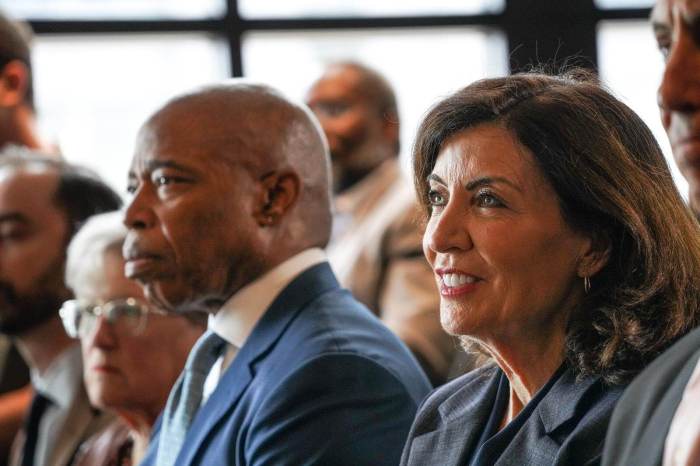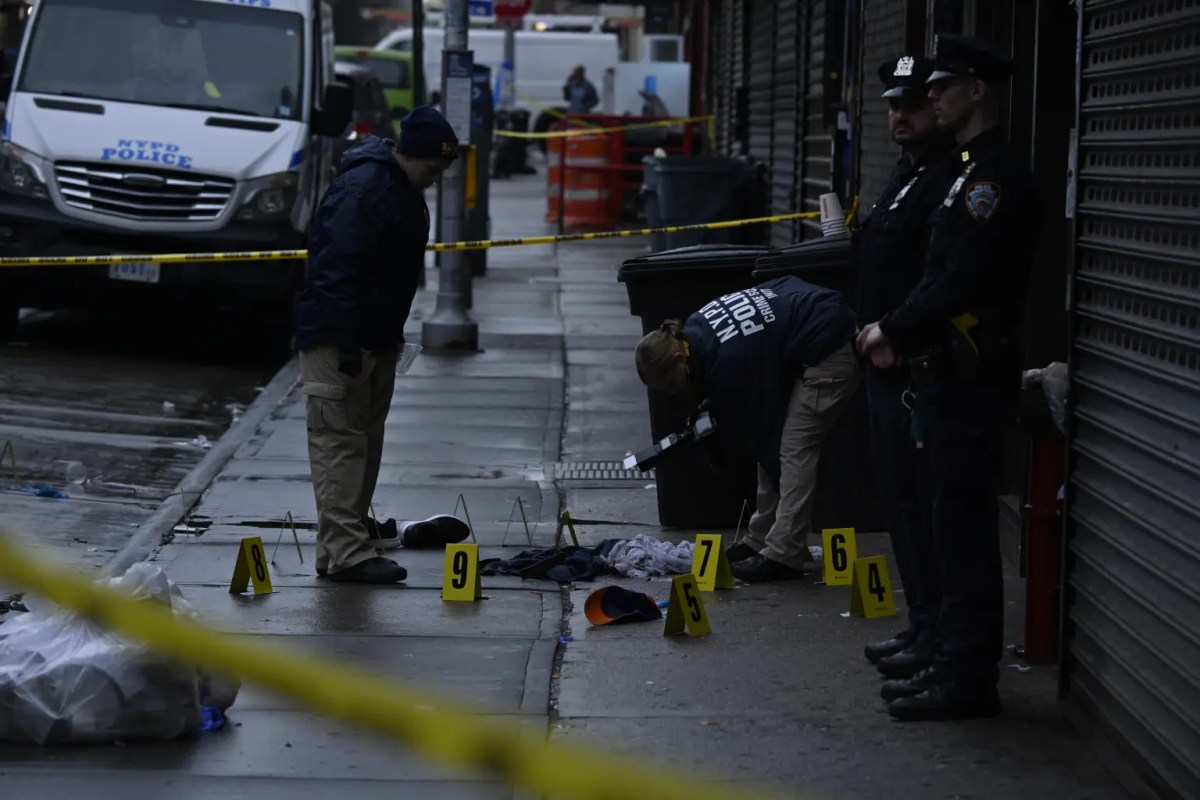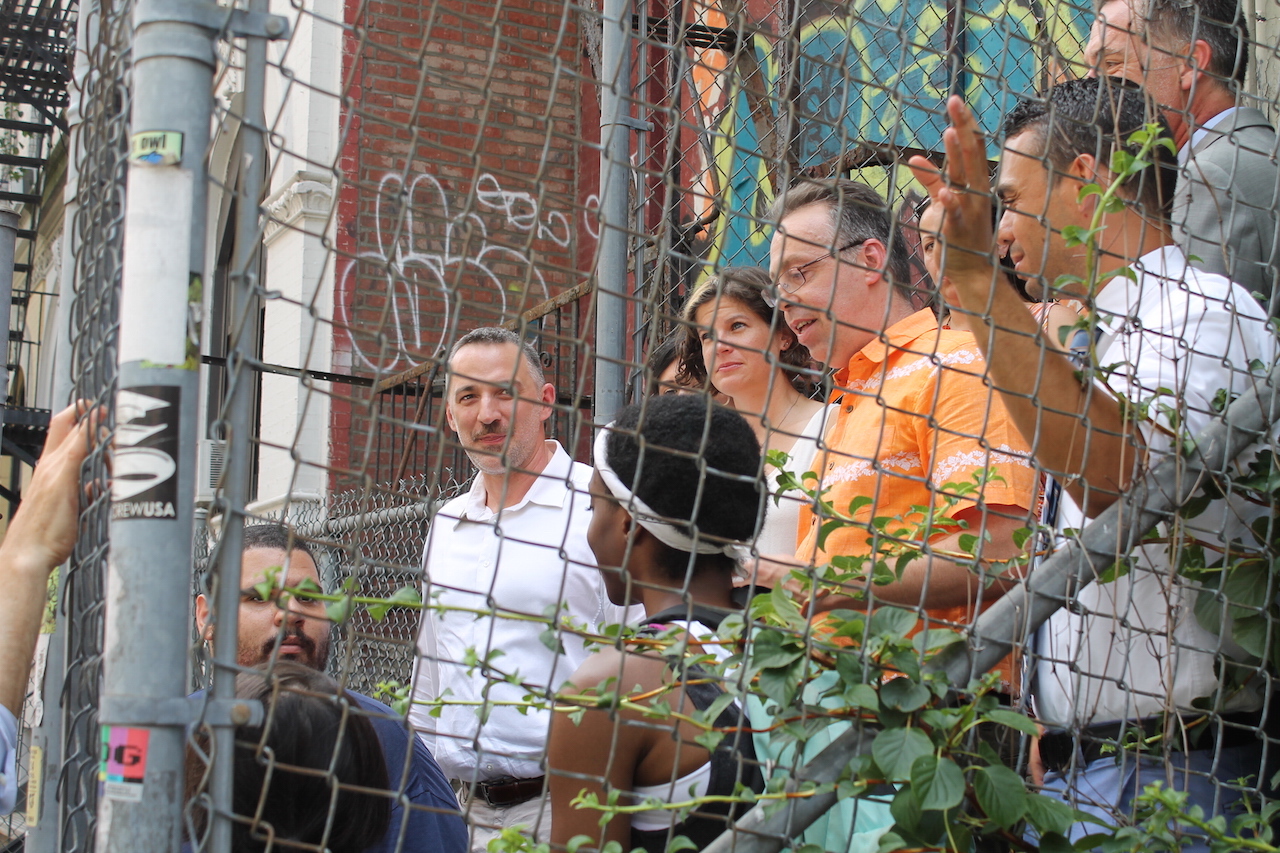
BY DUNCAN OSBORNE | Using a $3.3 million grant from the City Council, the Ali Forney Center will renovate an East Village brownstone and open a residence for homeless queer youth there in late summer of 2016.
“The last 13 years have been extraordinary,” Carl Siciliano, AFC’s founder and executive director, said at a July 20 event marking the start of the renovation of the E. 13th St. facility. “Our community has woken up to the need to help our L.G.B.T.Q. youth.”
On June 29, AFC, which was founded in 2002, purchased the vacant building for a dollar from the city’s Department of Housing Preservation and Development. The City Council money, which was originally budgeted in 2012, will pay for the renovation. Because AFC owns the building, cash for operations from two grants the agency has from the federal Department of Housing and Urban Development can go toward providing services, as opposed to paying rent.
“It’s the first building we own, which is a real game changer,” said Alex Roque, AFC’s director of development.
The 18-bed residence is named for actress Bea Arthur, who left $300,000 to AFC in her will. Arthur died in 2009. The beds will add to AFC’s existing inventory of 89 beds and another 18 that are expected to come online in the fall.
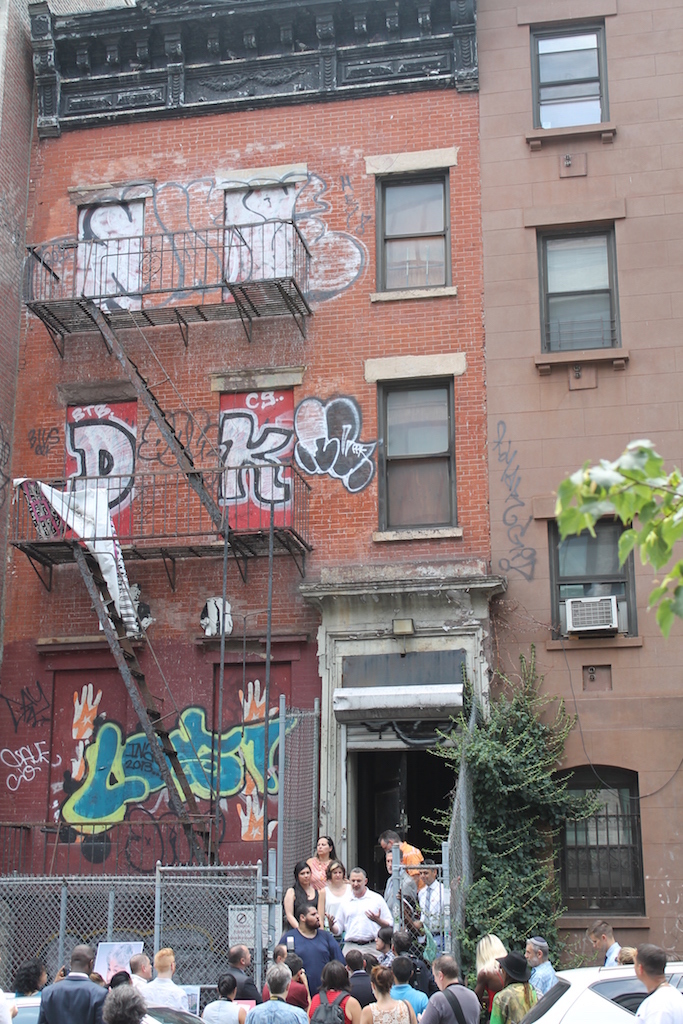
The city took over the building in a tax foreclosure action in 1991. It has fallen into disrepair since then. The front of the building is closed off with a chain-link fence and the interior, which is largely inaccessible and will be gutted, shows significant deterioration. While New Yorkers are known for generally supporting social services agencies as long as they are serving clients in someone else’s neighborhood, this facility was welcome.
“I know the residents on this block are happy there’s going to be a beautiful new building here,” said Steve Herrick, executive director of the Cooper Square Committee, an East Village nonprofit that develops affordable housing and other facilities. The committee partnered with AFC in developing the facility.
The groundbreaking included references to “Golden Girls,” the TV series that aired from 1985 through 1992 and starred Arthur, Betty White, Rue McClanahan and Estelle Getty, and “Maude,” another series that starred Arthur that ran from 1972 through 1978. Cheesecake, which was an ongoing bit on “Golden Girls,” was served following the groundbreaking.
“This is going to be an incredible tribute to Bea Arthur and her compassion,” said City Councilmember Rosie Mendez, an out lesbian who represents the East Village.
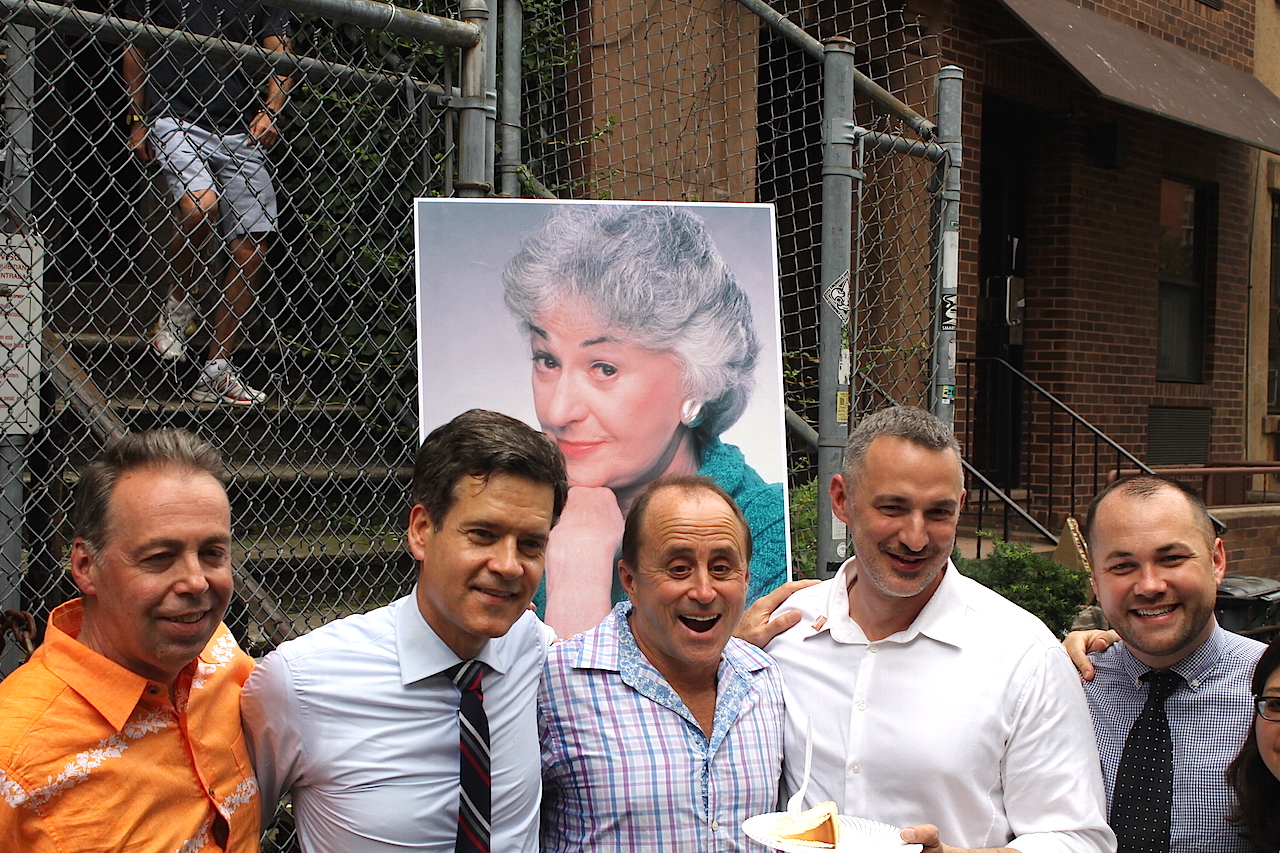
Mendez was joined by City Councilmember Corey Johnson, who heads the Council’s L.G.B.T. caucus, and state Senator Brad Hoylman, who noted he constitutes an L.G.B.T. caucus of one in that body.
“This is the conscience of our community,” Hoylman said. “We need to look after the kids who are coming after us.”
Johnson, who noted that Arthur’s character in “Golden Girls” was his favorite among the four leads, had a similar comment.
“This is more than a building. This is more than bricks and mortar,” he said. “This is a beacon of hope.”
Mendez said, “I am filled with pride as I stand with the Ali Forney Center and Cooper Square Committee for this extraordinary event. I am filled with joy, not only because I am a part of this but because it’s happening in my district, which has a long and rich history of welcoming, housing and providing services to all individuals in need.”












